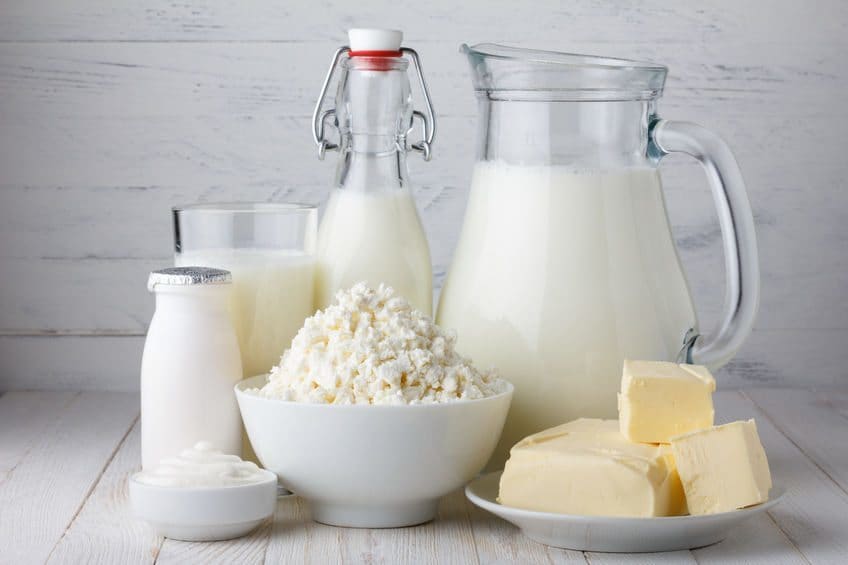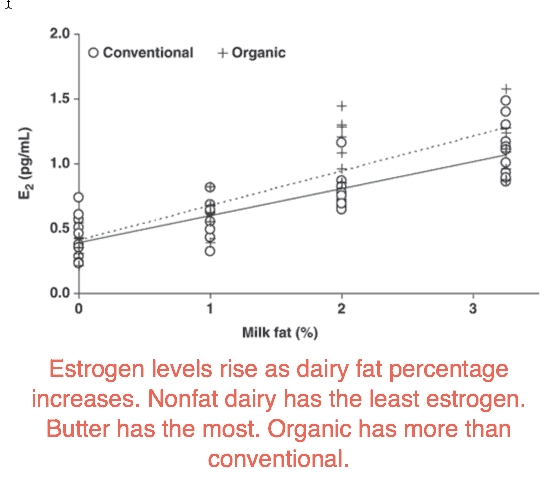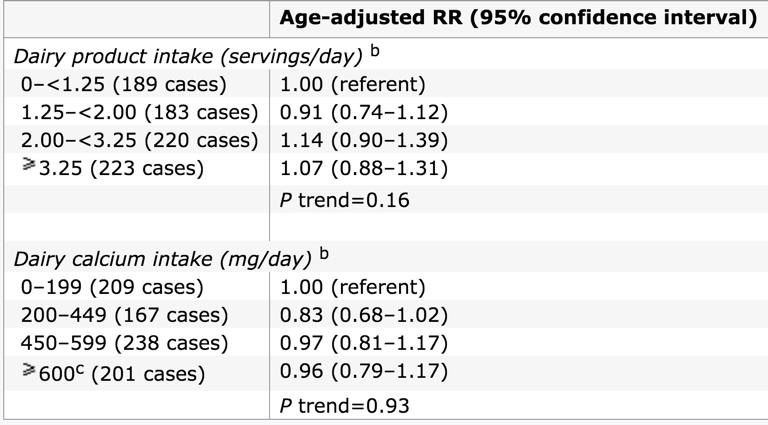
[cmamad id=”3465″ align=”center” tabid=”display-desktop” mobid=”display-desktop” stg=””]
Do you enjoy consuming dairy products?
You may realize that you are consuming the food designed for juvenile cows, goats, or sheep.
And you may know that milk contains everything that the tiny little calf or goat or lamb needs — including hormones such as estrogen.
So how much estrogen is really in dairy products?
Should we be worried if we consume a lot of dairy products?
Is there a connection between dairy products and cancer risk?
Are we getting too much estrogen and dairy products?
The average man should have about 20 to 30 pg/mL of estrogen in his blood.
It can be a bit lower.
But you want a good reading.
I’ve emphasized how inaccurate blood tests are to determine the levels of estrogen.
So, if you’re going to test for estrogen, you should test for estrone sulfate.
[cmamad id=”3466″ align=”center” tabid=”display-desktop” mobid=”display-desktop” stg=””]
A test for estrone sulfate is the best indicator of what estrogen levels actually in the cells.
But in any event, we’ll use that number as our best guess for this comparison.
We want to compare how much estrogen is in the body already, to the estrogen were getting in milk.
Or that we’re getting from butter. Or cream.
We want to see if dairy is bad for you.
 Penn State University’s got our backs.
Penn State University’s got our backs.
They’ve already done the measurements of estrogen levels in milk, cream, and butter.
Remember, if you drink something containing estrogen, a lot of the estrogen is going to get removed before it affects your cells.
The digestive process destroys some estrogen.
And some of it just passes through to your feces without being absorbed.
This is a pretty thorough study.
Seven unique brands of milk labeled certified organic and 11 unique brands of conventional milk (no organic or recombinant bST-free label) at each fat percentage were purchased.
You can see that the numbers are pretty straightforward:
 So if you’re drinking nonfat milk, you’re getting about .5 pg/mL of estradiol at type estrogen.
So if you’re drinking nonfat milk, you’re getting about .5 pg/mL of estradiol at type estrogen.
There is probably only 50% of that absorbed — if that.
This is a much smaller amount than what is found in the human body and is presumably quite safe.
 If you want to minimize estrogen and dairy products, then use nonfat or low-fat dairy products and avoid a lot of butter.
If you want to minimize estrogen and dairy products, then use nonfat or low-fat dairy products and avoid a lot of butter.
Some people think that dairy is on the list of what not to eat when you have cancer.
Let’s quickly turn to whether or not dairy products increase the chances of getting cancer… especially prostate cancer.
This is not a gold standard study as far as I’m concerned.
 It’s what is called a prospective study.
It’s what is called a prospective study.
Researchers send questionnaires to select men, and then they follow these men over a period of years.
In this case, they followed the men for five years.
So they tracked the men’s consumption of dairy products and calcium.
Researchers tracked the group’s incidence of cancer, death rates and so forth over five years, from 1993 to 1998.
First of all, there are only about 500 deaths out of 10,000 men, many of whom were over 60.
The chances of getting prostate cancer are not significantly different for different amounts of dairy consumption.
These numbers are too small to mean much.
 In theory, consuming some dairy is protective.
In theory, consuming some dairy is protective.
But again, I think what it all amounts to is that dairy products do not cause prostate cancer.
The study raises a new question, though.
What does dairy do for your body?
And it hints at an answer.
Actually, what this does is that it discusses that milk has a particular compound in it that can keep fibrosis down in the body.
This compound could help prevent Alzheimers and also prevent penile fibrosis.
More on that in another newsletter.
Low-fat dairy may still make it onto the diet for cancer patients.
Meanwhile drink milk, especially low-fat or nonfat milk.
Click for more information on the dangers of estrogen, for more on diet and exercise, and for more on dairy and cancer risk.

Estrone and 17beta-estradiol concentrations in pasteurized-homogenized milk and commercial dairy products.
http://www.ncbi.nlm.nih.gov/pubmed/20494161
Dairy products, calcium and prostate cancer risk
http://www.nature.com/bjc/journal/v95/n11/full/6603475a.html
